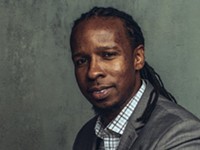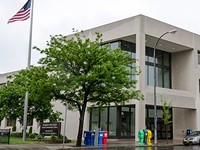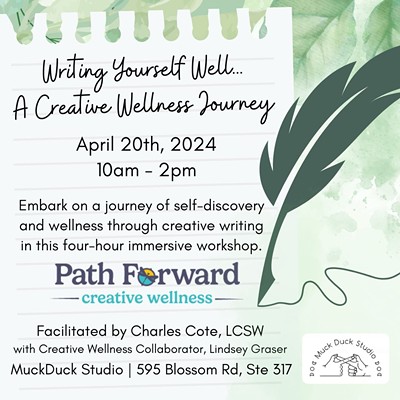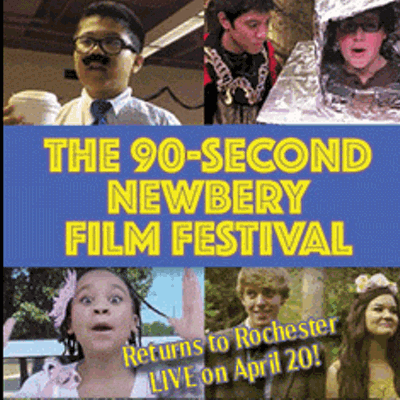[
{
"name": "500x250 Ad",
"insertPoint": "5",
"component": "15667920",
"parentWrapperClass": "",
"requiredCountToDisplay": "1"
}
]
Well, here we are, 50 years after the March on Washington, with commemorative gatherings, speeches, workshops, and media interviews with people who participated in that demonstration on the Mall that hot August day.
We have made progress since then, certainly, just as the nation had made progress in the 100 years before the March. It's no small thing that the president causing all that excitement on Rochester's Park Avenue last week was a black man Americans have elected not once but twice.
But the progress has been far, far too small and too slow. We can get a lump in our throat listening to recordings of King's speech, and feel all fuzzy and warm looking at the photos from Saturday's commemorative gathering in Washington. But what we ought to feel is shame.
Racism thrives today just as it did when King spoke about it 50 years ago. We've simply tucked it under the rug, finding ways to pretend there's no racism behind the assault on voting rights and affirmative action, that racism has had nothing to do with the concentration of poverty in our inner-city neighborhoods, the racial segregation of our schools, and the stop-and-frisk actions of police departments.
Fifty years ago, hundreds of thousands of people went to Washington to march for Jobs and Freedom. Today the black unemployment rate is almost double that of whites, a ratio that has hardly budged since 1963. The black poverty rate is almost double that of whites'.
Both statistics are much, much worse in cities. And you know about the graduation rate and test scores of the Rochester school district, whose student population is heavily black and Latino.
It has become too easy for white Americans to distance ourselves from that data. We can decry the statistics and at the same time assure ourselves that we have had no role in their creation – and bear no responsibility for addressing them. The absence of a Bull Connors unleashing police dogs on black demonstrators lets us exaggerate the progress we've made and ignore the racism permeating the nation's fabric – hidden, often, but still there.
I've heard too many stories from black friends and news sources to think that racism hasn't continued to thrive. They have endured humiliations that white Americans have not had to. They worry about experiences their children will have that white parents don't give a second thought to. Unlike white parents, they feel compelled to teach their sons about how to behave when they're stopped by police officers – as they are sure they will be.
In the weeks following the George Zimmerman verdict, I asked several of those friends and news sources if they would share their experiences. Here are excerpts from their e-mailed replies.
From Rochester City Council member Dana Miller, relating an experience at a local country club: "I was attending a wedding reception and was walking up the front steps. I was dressed in a suit and tie, and my wife was with me. As I approached the door, an older white man walked over to me and attempted to hand me his car keys.
"Although I considered for a moment that he was making a generous gift to me, I realized that he was expecting me to park his car for him. Since he did not appear disabled or in need of assistance, I politely refused and walked inside. He did not offer his keys to any of the other arriving guests who happened to be white, so I can only assume that he did not expect any person of color to be a guest rather than a valet."
Ben Douglas, former Rochester City Council and school board member, told of his experiences years ago as a young research engineer in Pittsburg, where he was stopped and questioned by police repeatedly, in both black and white neighborhoods.
Those incidents included two police officers stopping as Douglas was cleaning out his car, asking to see his registration and driver's license and, when he produced them, asking him to pull out his keys and lock and unlock the car. Finally satisfied, said Douglas, "they said they had a report of a car theft in progress from an elderly lady who was looking out of her window."
On another day, Douglas was walking from his Pittsburg apartment to a nearby convenience store when a police car racing by with its lights flashing pulled over, and police officers got out and questioned him. "It was same routine about identification, where did I live, etc.," Douglas said. The officers had been responding to a report of a robbery in progress at the convenience store, and Douglas, they said, fit the description of the robber.
When Douglas got to the store, the police had the robber in custody. "The reason this incident stands out so vividly," said Douglas, "is that I was wearing a three-quarter length, golden-brown cloth coat and an Afro. The man they arrested was wearing a short black leather coat, was about two to three inches taller than me, had shoulder length hair, and was white."
And locally: about eight years ago, as Douglas, now living in Rochester, was nearing a house in Brighton to drop off his daughter for a friend's sleepover, an officer in a police car signaled him to pull over and pulled up behind him.
After the commotion drew the daughter's friend and family to the front door, and Douglas's daughter got out of the car and went into the house, the officer finally walked to Douglas's car, said the car inspection had expired, and told him to get it fixed. "I was amazed he could spot this three car lengths behind me at night in the dark," Douglas said.
And two years ago, police stopped his then-teenage son, who was riding Douglas's wife's bike home from a visit with a friend in West Irondequoit: "They thought he had stolen the bike and didn't believe he lived where he said. They noticed the combination bike lock and demanded that he open it. My son didn't know the combination but had the presence of mind to call my wife on his cell phone. My wife gave him the combination and spoke with the officers to verify his description."
"Fortunately," said Douglas, "I had that 'conversation' with my son some time before that incident, and he remained calm and polite. I imagine, when the time comes, my son will have that 'conversation' with his son."
Action for a Better Community CEO James Norman related experiences both growing up and attending college in the South and living and working in the North: witnessing a KKK march in Atlanta and being cautioned by his father not to stare; encountering segregated Greek organizations and Confederate-themed social affairs and black-face caricatures at the recently integrated southern university he attended.
"As a junior high student in Augusta, Georgia, an elderly white man challenged my sitting in the front of the bus," Norman said. "I ignored his challenge; he got off the bus."
"I was patently aware of residential segregation and differentials in the quality of life in communities that I have lived in: Augusta, Georgia; Macon, Georgia; Kalamazoo, Michigan, and Pontiac, Michigan. I have the same experience in Rochester.
"Twice, I have been called the N-word to my face. Once, the slur was totally unprovoked in any way; I was just walking down the street in Kalamazoo in 1971. In 2009, when I was driving in Atlanta, I was repeatedly called the N-word in a tirade by an elderly white man who thought that I cut him off at a complicated traffic intersection.
"In Rochester, I regularly observe the presence of racism as reflected by all-white or nearly all-white boards of directors. Occasionally, I encounter racist jokes. It's not always about blacks or Latinos; it may be about an ethnic group. I generally use such situations as a teachable moment, which doesn't tend to endear me to the social group."
I also got stories from 23-year-old Adrian Elim, who, as an undergraduate at the University of Rochester, frequently crossed the pedestrian bridge from the 19th Ward to the university. "Each time I walked across and passed a white person," Elim wrote, "they got incredibly uneasy and more often than not became best friends with the side railing furthest from me. It didn't matter how I dressed, whether I be in a suit, skinny jeans, shorts, or sweatpants (no hoodie): the reaction I got was the same."
Among those encounters: walking behind an elderly white man, who after looking back at Elim repeatedly, stopped, knelt down, and held his hands on the release to the leash, ready to unleash the dog if necessary.
And at the university, said Elim, "it was a task and a half to try and get adequate information from white student workers at the University. I would generally have to spend the first two minutes of the conversation trying to convince them that I was a student."
Elim is now with the Greater Rochester Health Foundation, but as a student he worked at Wegmans, and he was frequently asked by customers if he was in college. When he said yes, the response was almost invariably, "Oh, at MCC?"
"MCC is one of the top community colleges in the country and is a fine institution," Elim wrote, "but having that be the only 'plausible' college a young black man could attend is 12 steps past insulting."
"Walking down the street pretty much anywhere gets me various looks of concern and uncertainty," Elim wrote. "If there is a white couple walking together, the woman almost always grabs her purse, and her male counterpart usually makes some sort of physical contact with her (be it grabbing her hand or putting his arm around her shoulder)."
Fifty years ago, 30 years ago, eight years ago, today: this is not subtle racism, and it still exists. In his speech at the Lincoln Memorial, King talked – as he did on other occasions – about the "fierce urgency of now," the "tranquilizing drug of gradualism."
And, noting that 100 years had passed since Lincoln signed the Emancipation Proclamation, King said that 100 years later, "the life of the Negro is still sadly crippled by the manacles of segregation and the chains of discrimination."
There is every bit the urgency now that there was when King spoke in Washington. But plenty of people are still wedded to gradualism in dealing with racism and its effects – and worse, cling to denial and pretense.
It's hard to be optimistic about where we'll be 50 years from today.
"The absence of a Bull Connors unleashing police dogs on black demonstrators lets us exaggerate the progress we've made."
Grillings by police, demeaning assumptions at a country club, at a university, or in a check-out line: racism still flourishes in Rochester.
Speaking of...
Latest in Urban Journal
More by Mary Anna Towler
-

Police reform: advocates on what should come next
Oct 22, 2019 -

Court clears the way for Police Accountability referendum
Oct 17, 2019 -

Dade outlines initial actions on district deficit
Oct 9, 2019 - More »









